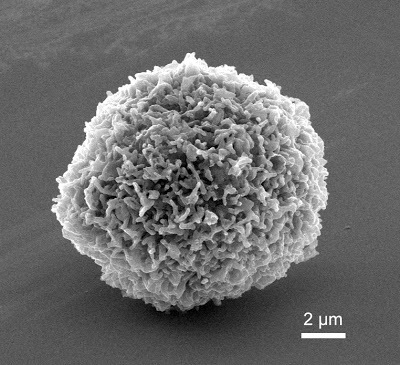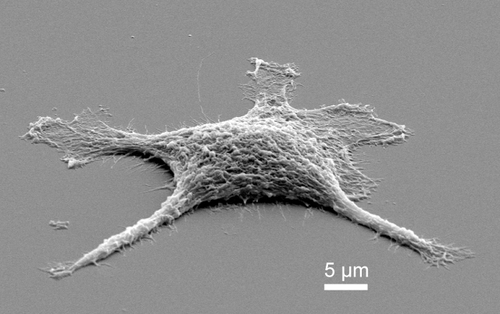Zombie Mammalian Cells Have Been Created

Sandia National Laboratories in collaboration with the University of New Mexico (UNM) have developed “zombie” cells that can function better after they die. The technology suggests coating a cell with a silica solution to form a near-perfect replica of its structure. Researchers claim, that the process may simplify a wide variety of commercial fabrication processes from the nano- to macroscale. Bryan Kaehr, a Sandia materials scientist, reports “It’s very challenging for researchers to build structures at the nanometer scale. We can make particles and wires, but 3D arbitrary structures haven’t been achieved yet. With this technique, we don’t need to build those structures — nature does it for us. We only need to find cells that possess the machinery we want and copy it using our technique. And, using chemistry or surface patterning, we can program a group of cells to form whatever shape seems desirable. Because a cell is populated by a vast range of proteins, lipids and scaffolding, its interior is ready-made to model catalysts, funnels, absorbents and other useful nanomachinery”. This simple procedure may serve as a model for making hardier classes of nanoscopic products.
Via:33rdsquare.com

| Tweet |











